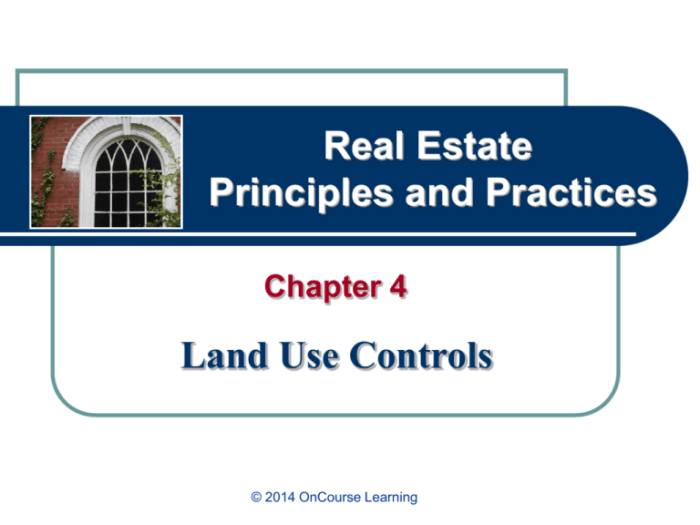Interstate Land Sales Full Disclosure, governed by the Interstate Land Sales Full Disclosure Act (ILSFDA), plays a pivotal role in safeguarding consumers engaged in real estate transactions involving undeveloped land across state lines. This comprehensive guide delves into the intricacies of the ILSFDA, exploring its purpose, requirements, exemptions, enforcement mechanisms, and impact on the real estate industry.
The ILSFDA empowers consumers with crucial information to make informed decisions, fostering transparency and protecting them from potential fraud and misrepresentation. Its provisions ensure that material facts about the property, including environmental hazards and financial data, are fully disclosed to prospective buyers.
Definition of Interstate Land Sales Full Disclosure Act (ILSFDA)

The Interstate Land Sales Full Disclosure Act (ILSFDA) is a federal law enacted in 1968 to protect purchasers of undeveloped land located outside their state of residence. The ILSFDA requires developers of certain subdivisions to provide prospective buyers with a disclosure statement containing detailed information about the property and the developer.
The ILSFDA applies to any subdivision containing 25 or more lots that are offered for sale or lease through interstate commerce. This includes sales made through the mail, telephone, or the internet. The ILSFDA does not apply to sales of single-family homes or to sales of land that is already developed.
Key Provisions of the ILSFDA
The ILSFDA requires developers to provide prospective buyers with a disclosure statement that contains the following information:
- A description of the property, including its location, size, and topography.
- A description of the developer, including its experience and financial status.
- A description of the terms of the sale, including the purchase price, the down payment, and the financing terms.
- A description of any amenities that are promised, such as roads, utilities, and recreation facilities.
- A statement of any liens or encumbrances on the property.
The ILSFDA also prohibits developers from making false or misleading statements about the property or the developer. Developers who violate the ILSFDA may be subject to civil and criminal penalties.
Requirements for Disclosure under ILSFDA

The Interstate Land Sales Full Disclosure Act (ILSFDA) mandates the disclosure of specific information to prospective buyers of interstate land. This disclosure is intended to protect buyers from fraud and misrepresentation and to ensure that they have all the necessary information to make informed decisions.
Types of Information that Must be Disclosed
The ILSFDA requires the disclosure of a wide range of information, including:
- Property details, such as the location, size, and amenities
- Financial data, such as the purchase price, financing options, and any assessments or fees
- Environmental risks, such as flooding, soil erosion, and pollution
- Legal issues, such as zoning restrictions and easements
- The developer’s or seller’s financial condition and experience
Methods of Disclosure
The ILSFDA requires that the required information be disclosed in two ways:
- Property Report:A detailed written report that contains all of the required information. The property report must be given to prospective buyers before they sign a contract.
- Written Contract:The contract must include a summary of the information contained in the property report. The contract must also include a statement that the buyer has received and read the property report.
Penalties for Non-Compliance
Failure to comply with the ILSFDA’s disclosure requirements can result in significant penalties, including:
- Civil fines
- Criminal penalties
- Injunctions
- Rescission of contracts
Exemptions from ILSFDA

The ILSFDA includes several exemptions from its disclosure requirements. These exemptions are designed to ensure that the Act does not impose an undue burden on the sale of certain types of land.
Exemptions for Residential Lots and Small Subdivisions
One of the most important exemptions from the ILSFDA is for the sale of residential lots and small subdivisions. This exemption applies to the sale of unimproved lots that are less than five acres in size and are located in a subdivision that contains fewer than 25 lots.
To qualify for this exemption, the seller must meet the following conditions:
- The seller must not engage in any advertising or promotional activities that are designed to induce the purchase of the lots.
- The seller must not provide any facilities or services to the buyers of the lots, such as roads, utilities, or recreation areas.
- The seller must not make any representations or warranties about the future value or development of the lots.
Consequences of Failing to Meet the Exemption Requirements
If a seller fails to meet the requirements for any of the exemptions from the ILSFDA, the seller may be subject to enforcement action by the Department of Housing and Urban Development (HUD). HUD may impose civil penalties on the seller and may also require the seller to provide restitution to buyers who have been harmed by the seller’s failure to comply with the Act.
Enforcement of ILSFDA

The Interstate Land Sales Full Disclosure Act (ILSFDA) is enforced by the Department of Housing and Urban Development (HUD). HUD has the authority to investigate violations of the ILSFDA and to take enforcement actions, such as:
- Civil penalties
- Injunctions
HUD may also refer cases to the Department of Justice for criminal prosecution.Consumers who have been harmed by violations of the ILSFDA may be entitled to remedies, such as:
- Rescission of the contract
- Damages
- Injunctions
Consumers should contact HUD or a private attorney to learn more about their rights and remedies under the ILSFDA.
Impact of ILSFDA on the Real Estate Industry
The Interstate Land Sales Full Disclosure Act (ILSFDA) has had a significant impact on the way real estate is marketed and sold. Prior to the enactment of the ILSFDA, there was widespread fraud and misrepresentation in the sale of interstate land.
The ILSFDA was enacted in 1968 to protect consumers from these abuses.
Benefits of ILSFDA for Consumers
The ILSFDA has provided a number of benefits for consumers, including:
- Increased transparency: The ILSFDA requires developers to provide potential buyers with a detailed disclosure statement that contains important information about the property, such as the developer’s financial status, the availability of utilities, and the existence of any liens or encumbrances.
- Protection from fraud: The ILSFDA prohibits developers from making false or misleading statements about their properties. This helps to protect consumers from being defrauded.
- Improved access to information: The ILSFDA requires developers to register their properties with the Office of Interstate Land Sales Registration (OILSR). This makes it easier for consumers to access information about properties that they are considering purchasing.
Challenges and Criticisms of ILSFDA, Interstate land sales full disclosure
While the ILSFDA has been successful in protecting consumers from fraud, it has also been criticized for being overly burdensome on developers. Some developers argue that the ILSFDA’s disclosure requirements are too onerous and that they make it difficult to market and sell properties.
Others argue that the ILSFDA’s registration requirements are unnecessary and that they create an unnecessary barrier to entry for new developers.
Quick FAQs: Interstate Land Sales Full Disclosure
What is the purpose of the ILSFDA?
The ILSFDA aims to protect consumers from fraud and misrepresentation in interstate land sales by mandating the full disclosure of material facts about the property.
What types of transactions are covered by the ILSFDA?
The ILSFDA applies to the sale or lease of undeveloped land divided into 100 or more non-contiguous lots, where the seller is engaged in the business of selling or leasing such land.
What are the key provisions of the ILSFDA?
Key provisions include the requirement for a property report containing detailed information about the land, financial data, and environmental risks, as well as the prohibition of false or misleading statements.